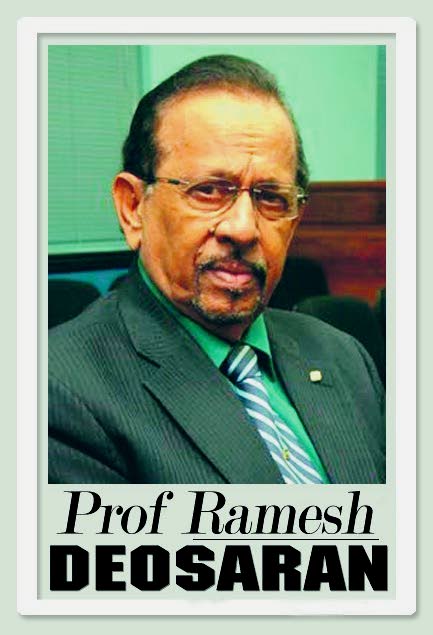The politics of recovery

While covid19 occupies centre stage, four issues have arisen alongside with varying degrees of public concern: the troubling visit by Venezuela’s vice president Delcy Rodriguez, campaign finance reform legislation, increasing murder and low detection rates, and appointments to the Roadmap to Recovery committee.
So far, the government’s management of covid19, with Mr Deyalsingh and Dr Rowley’s phased “opening up,” while appearing reasonable, still remains risky terrain.
Given its economic focus, at least three outstanding issues will follow the recovery committee’s early report.
(1) Implementation and the technical support required.
(2) The subsequent need for long-term planning and again, what kind of mechanisms will be established not only for economic recovery but for embracing social and governance objectives.
(3) The well-known inefficiencies and “unfit for purpose” condition of state agencies and institutions required for effective implementation will be troublingly exposed.
As much as we wish otherwise, the economic and social costs of crime – from praedial larceny to white-collar crimes – continue to be very challenging. It was, therefore, quite pleasing last week when two UWI criminologists, Dr Daurius Figuera and Dr Keron King, publicly offered several anti-crime suggestions to help bring some ground-up solutions, including the sociological connections to effective policing.
However, what got controversial social-media traction were the appointments of Winston Dookeran, then Vasant Bharath and the near-miss by Dr Bhoe Tewarie to the Roadmap to Recovery committee. In Dookeran’s case, it was a welcome step of relief for him. Bharath’s expressed joy in joining the recovery committee naturally raised some eyebrows, since he was once seen as an active threat to Ms Persad-Bissessar. For her, there may be no "love lost." As to what will happen to both UNC members Dookeran and Bharath after the recovery committee’s report is finalised, well, that too will make interesting reading.
Neither Dookeran nor Bharath seemed to have asked the UNC leader anything. Should they? After all, freedom of movement is a constitutional right and politics has its own morality.
Which brings us to Dr Tewarie. Different from Dookeran and more so from Bharath, Tewarie treated committee vice co-chairman Robert Le Hunte’s invitation to join with tactical courtesy. He agreed, but opted for party protocol. And he benefited a lot from this.
Le Hunte, the very capable banker from Ghana, publicly acknowledged Tewarie’s suitability. Backgrounded by Dookeran and Bharath’s “lone ranger” acceptance of the offer to join the committee, Tewarie instead referred Le Hunte’s invitation to Ms Persad-Bissessar. His party loyalty was established, with Caroni Central candidacy doubtlessly assured.
Through deputy leader David Lee, the UNC referred Le Hunte and Dr Rowley to the UNC’s five-pillared Economic Transformation Masterplan for the post-pandemic period.
So Tewarie apparently gained something on two fronts, while Dookeran and Bharath confessed “country first.” Knowing how perceptions often override facts in politics, and as the elections get nearer, the country is in for an exciting time, awaiting Ms Persad-Bissessar’s proposed mixture of “old and new faces.”
Anyhow, this opens a window to the enigma of multi-party politics. In a sense, the Dookeran-Bharath memberships soften party barriers when facing common purpose. In another sense, unapproved by party leadership, such memberships subvert the need for party loyalty to maintain our adversarial Westminster-type democracy.
All in all though, they expose the limitations of multi-party democracy. Stepping out on a “country-first” rationale implies the party puts “party first” before country. However, wouldn’t supporters of any party argue that their party works in the national interest too?
The political dilemma arises since this recovery committee is necessary and of course whoever is appropriately skilled should support it as far as possible. The country faces a viral crisis affecting all. But it remains intriguing to witness how the Westminster multi-party system struggles with itself.
When the committee’s final report is strategically absorbed into the PNM manifesto, this will likely confer credibility on the party’s campaign. But there will still be gaps to fill for sustainable development. It will be a tough election fight. The country awaits election pledges from contesting parties on crime and accountability, constitution reform, state corruption, the vast expenditures on subsidies and patronised state companies, on agricultural development and its ancillary industries, education, etc. The pandemic has helped expose some of the country’s weaknesses. The politics of recovery has started.


Comments
"The politics of recovery"